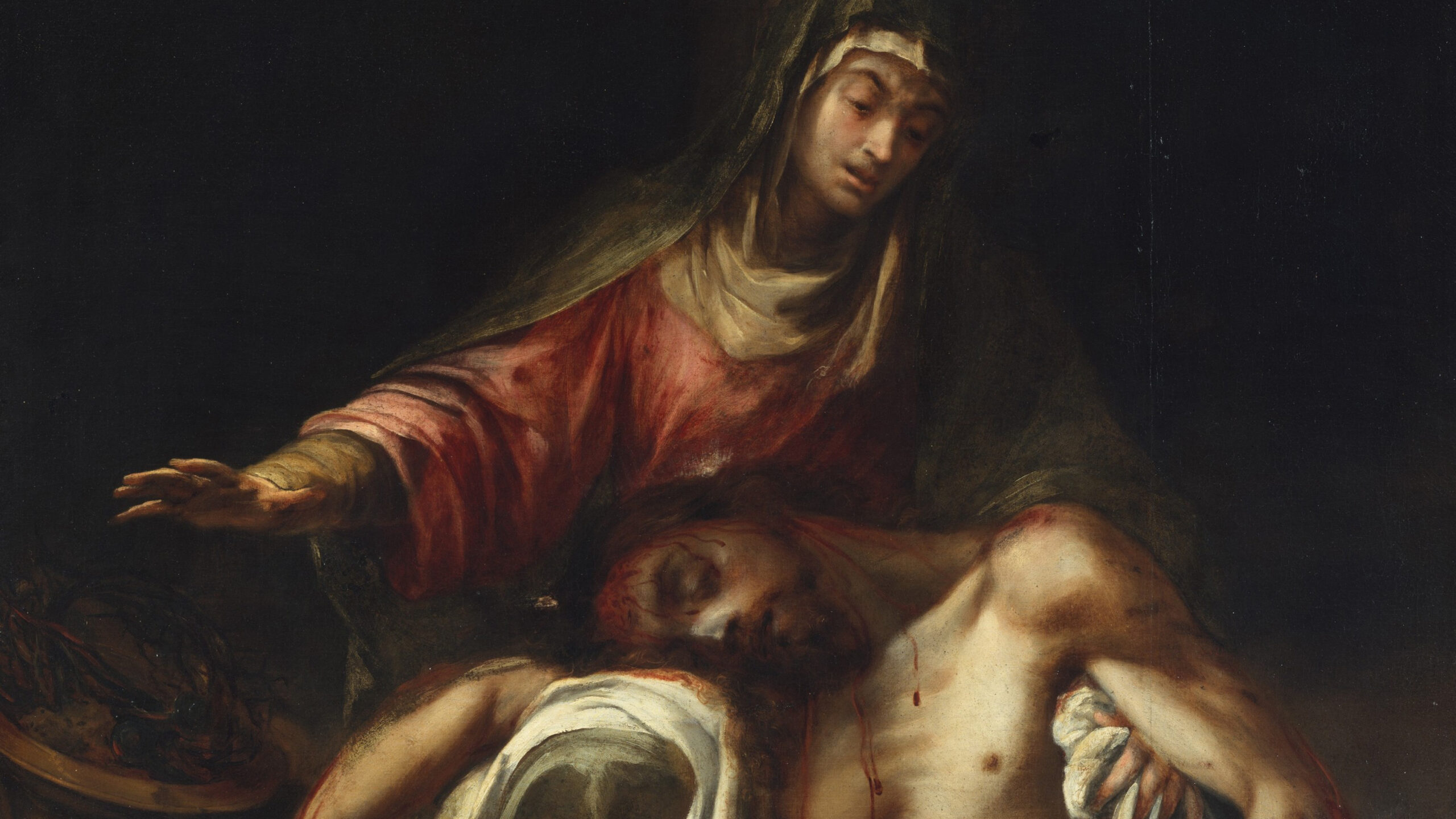There is a phrase used in monastic life to refer to the period of time between the last hour of prayer, after which the monks retire to their cells, and the first hour of prayer, with which the monks greet the new day, called “the great silence.”
On the practical level, the great silence seems to refer simply to the time when all the work of monastery is accomplished and the monks settle down for sleep.
But deeper than this, the great silence is not just a time of rest, of passivity, but the time where, while human labor ceases, God remains active and working, though unseen and most often unheard, speaking in the stillness with the eloquence of his Eternal Word. The monks rest, knowing that God in the great silence abides.
The practice of silence is considered by the Church’s saints and sages to be an integral reality for our spiritual lives. The soul is fed by silence and the life of the soul dissipates without it. However, the importance of silence in terms of our spiritual lives can at times be overshadowed by words of human creation- even the inspired words of prayer. Consider how much of our prayer is filled with words- we petition, praise, speak and provoke. Words occupy our minds even if our eyes are closed to the printed pages of our prayer books or when our lips do not move. We think in words and one of the most arduous disciplines of the spiritual life is to still all that chattering, both internal and external, and learn to listen, rather than speak. God’s Word’s demands attentiveness and the condition for the possibility of that attentiveness is silence.
An undue attachment and emphasis to words of human creation can inhibit silence. Consider how speech pre-occupies us. “Why won’t he talk to me” is a complaint one hears over and over. “I can’t believe she said that,” we protest. Silence is associated with being rude. “Is he ignoring me?” Silence is associated with dangerous tendency towards indifference. Think of the oft used maxim: “Silence = Death.”
But isn’t all this simply evidence of the rapacious desire of the ego for attention? It seems so. If cosmic and geologic history is our frame of reference, it was literally billions of years before a human word was ever heard and the universe moved right along without any help from our vocalizations. Should all human speech cease, the universe would continue unabated, unfazed by our absence. Words might be necessary for us, but not for the world- at least not human words. Our words, no matter how clever or well crafted, are dispensable, relative, passing away.
The Scriptures tell us that even holy words, words of prophecy and praise will one day cease. The great coming of God is initiated in the Book of Revelation by a penetrating and deafening silence that overtakes heaven and earth,
And yet, though our words pass away, there remains a Word that is eternally spoken. This Word is Christ. He is the Word through whom all things were made, indicating that he speaks in all that exists. If we want to know what God sounds like, his vocabulary, syntax, grammar, his choice of words, the cadences of his speech and peculiar accent, then we have to listen to the Eternal Word.
The Eternal Word speaks to us first in a language imprinted on creation itself. In every blade of grass, in every bird that takes wing, in the storm at sea and in the azure blue sky, in all this the Eternal Word is speaking his truth about who he is and who we are meant to be.
The Eternal Word became flesh, that is, he took as his own a human nature and became a man. He spoke to us in the language of human speech, though we did not for the most part hear him or believe that what he was saying was true. Many became angry with him for what he said and sought to silence him. This silencing took the form of a cross and a grave. These gestures of our refusal spoke louder than any words.
Yet God cannot be silenced.
The Eternal Word made flesh spoke more eloquently deprived of human speech than in all of his carefully chosen words.
In the hours of Holy Saturday, a great silence overtakes the Church. Our silence commemorates that God in Christ descended to where no human word is uttered or heard— the silence of the grave. Yet even in that silence God is speaking.
In fact, the Eternal Word utters his loudest cry as he moves into death.
He descends to the dead like a great warrior, every step he takes resounding like the waves breaking upon the shore and his every movement reverberating in time and eternity like an earthquake that shakes the foundations of creation. He calls out to the dead by name as he called forth Lazarus from the tomb: “Come forth”.
On this day, in the silence of Holy Saturday, the Eternal Word spoke and death was transformed forever. No longer is death an end; now by Christ’s command, it is a way that leads to him.
In these last hours of the great silence of Holy Saturday, when the Eternal Word speaks in the hidden recesses of death, let all mortal flesh keep silent and in this silence, let us be attentive and listen.
